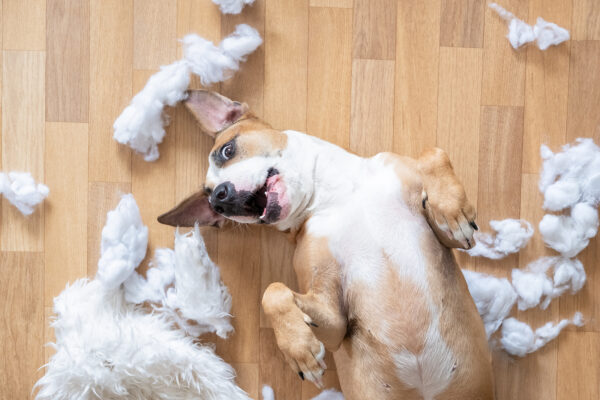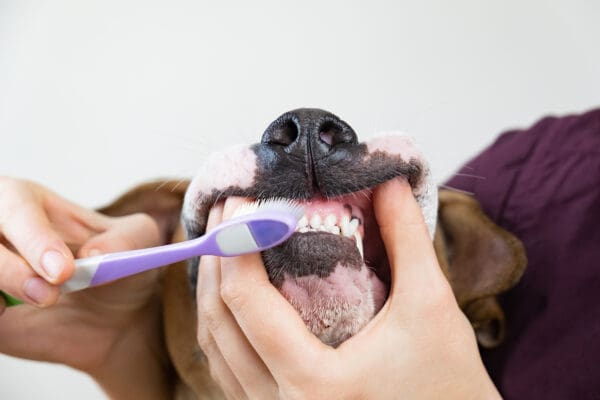
11401 NE 195th St. Bothell, WA 98011
(425) 486-9000 PHONE (425) 486-9002 fax
What is Feather Damaging Behavior?
Feather damaging behavior (FDB), also known as “feather picking,” is a destructive, obsessive behavior pattern, often linked to medical or psychological abnormalities, in which birds pull out or damage their own feathers. The causes of FDB are often complex.
There are 3 categories of FDB:
- Feather destruction: Feathers are chewed/mutilated.
- Feather plucking: Feathers are plucked out of the skin.
- Self-mutilation: Skin and underlying tissues are damaged.
Birds that practice FDB may exhibit behavior that fits into any or all of these categories. They may target certain types of feathers (such as down feathers or contour feathers), or they may restrict their picking activities to certain locations on their bodies (such as underneath their wings, on their chest, or on their legs). If birds pull out their feathers enough times, they can eventually damage the underlying feather follicles, resulting in a permanent loss of the plucked feathers.
Why does FDB occur?
Feather picking is primarily a behavior problem of captive birds. In the wild, parrots divide their time primarily among the following activities: foraging, socializing with flockmates, playing, exploring the surrounding environment (often several miles worth of territory), evading predators, preening, and sleeping. In contrast, your average companion parrot has a very different home environment. Some of these differences may include:
- Food is available all the time, in the same bowl, everyday.
- May be receiving an unbalanced diet.
- Often lack flockmates (human or bird) to socialize with for much of the day.
- Little mental stimulation.
- No predators to evade.
As a result of this comparatively decreased environmental stimulation, companion parrots often spend an excessive amount of time preening. Under normal conditions, birds will spend a certain amount of their waking hours grooming or preening each individual feather. Old, worn feathers are replaced by new ones during the normal molting process, and each feather is replaced once yearly at a minimum. At no time during a normal molt will the bird appear bare or have bare patches. If birds “over-preen” their feathers, this may eventually lead to FDB.
Owners often blame FDB on mental/emotional disturbances, boredom, and sexual frustration on the part of their companion bird. However, scientific studies have shown that many birds exhibiting FDB are responding to a complex layer of factors that often include health problems, in addition to behavioral problems. Some of the reported medical causes of FDB include infection (bacterial, viral, fungal, or parasitic), toxin exposure, organ disease, foreign body ingestion, nutritional deficiencies, hypersensitivity reactions, pain (arthritis, angina, neuropathic), and cancer.
In some cases, if the underlying health problems are appropriately addressed, FDB may significantly lessen and even resolve. Other birds may require chronic, long term behavioral management and training in order to improve their symptoms. In severe cases, some birds may continue to practice FDB regardless of the intervention provided.
My bird is showing signs of FDB. What should I do?
Any bird that exhibits FDB should receive a thorough physical exam by a veterinarian experienced in avian medicine as soon as possible. If your bird is brought to the Center for Bird and Exotic Animal Medicine for a FDB consult, the veterinarian that examines your bird will first be looking for signs of illness that could be causing your bird to damage its feathers. In addition to a thorough physical exam, a full diagnostic workup will be recommended to rule out underlying disease as a cause for FDB. Some of these tests may include:
- Bloodwork (CBC/Serum chemistry/EPH) to look for signs of underlying systemic infection or organ disease.
- X-rays to evaluate for organ abnormalities, foreign body ingestion, or tumors
- Cytologies of choana, crop, and feces to look for signs of localized infection
- Direct fecal exam for protozoal parasites
- Testing for Psittacine Beak and Feather Disease/Polyoma Virus
- Feather pulp cytology and/or skin scrape cytology to help rule out follicular inflammation and skin disease
Based on the results of these tests, your veterinarian may recommend additional follow-up tests, including but not limited to: bacterial culture/antibiotic sensitivity panel, heavy metal toxin screen, skin biopsy, barium series, cardiac workup (echocardiography/ECG/blood pressure), or endoscopic exam/biopsy of diseased organs.
If your bird is found to be healthy within a reasonable doubt based on its physical exam and diagnostic tests, the veterinarian will then focus on behavioral causes for FDB. Some of the reported psychologic causes for FDB in birds include stress, anxiety, attention-seeking behavior, sexual behavior, phobic behavior, obsessive compulsive behavior, and habitual behavior. Low humidity, infrequent bathing, cigarette smoke, inhalant and food allergies have also been suggested as causes of plucking behavior
Your veterinarian will conduct an in-depth interview regarding your bird’s environment and behavior to help him/her receive an accurate picture of your bird’s daily life and factors that may be influencing its FDB. Your veterinarian may ask that you keep a “behavior journal” chronicling each FDB episode and what happened before, during, and after the episode. This can be a valuable tool to addressing many behavior problems. Your veterinarian may also ask you to videotape your bird’s behavior. In severe situations, your veterinarian may make a house call in order to get to the bottom of the problem.
The veterinarians at the Center for Bird and Exotic Animal Medicine may make several behavioral modification recommendations based on their behavior consult. These recommendations will be based on the veterinarian’s knowledge of companion bird psychology and physiology, and will utilize positive reinforcement training methods. It will be vital to closely follow any behavioral modification recommendations made by your veterinarian to give his/her treatment plan the best chance of success. You and every other member of your household will have to be very consistent when implementing the recommended protocols; otherwise, their efficacy will diminish significantly. Be aware that it may take months to years to properly address the behavior issues involved.
What about using an E-collar or a sweater to help prevent my bird from pulling out feathers?
Many owners are interested in using collars or sweaters to prevent their birds from feather picking. Unfortunately, these tools are a band-aid for the problem, not a long term solution, and they tend to be very stressful for birds. Collars may inhibit your bird from eating out of food bowls and playing with toys, and will prevent your bird from engaging in normal preening behavior. Usually, once the collar comes off, the picking commences.
Are there anti-psychotic drugs for birds?
Pharmaceutical management of psychological feather picking should only be attempted in 3 situations:
- When there is an identified underlying medical problem (such as excessive reproductive activity)
- When the bird is self-mutilating
- “When all else has failed”
Psychological drugs in psittacine species can cause dangerous, even fatal, side effects, and should always be prescribed with caution. However, for some birds, they are the only treatment that works. If your veterinarian chooses to prescribe one of these drugs to your bird, he/she should provide full disclosure of the potential side effects to you first. Pharmaceutical management of feather picking should always be viewed as an ADJUNCT to behavior modification training, not as a replacement for it. The goal should always be to wean the patient off the medications eventually.
March 30, 2015
Content of this Care Sheet Courtesy of:
The Center for Bird and Exotic Animal Medicine
11401 NE 195th St. Bothell, WA 98011
(425) 486-9000 PHONE (425) 486-9002 fax



